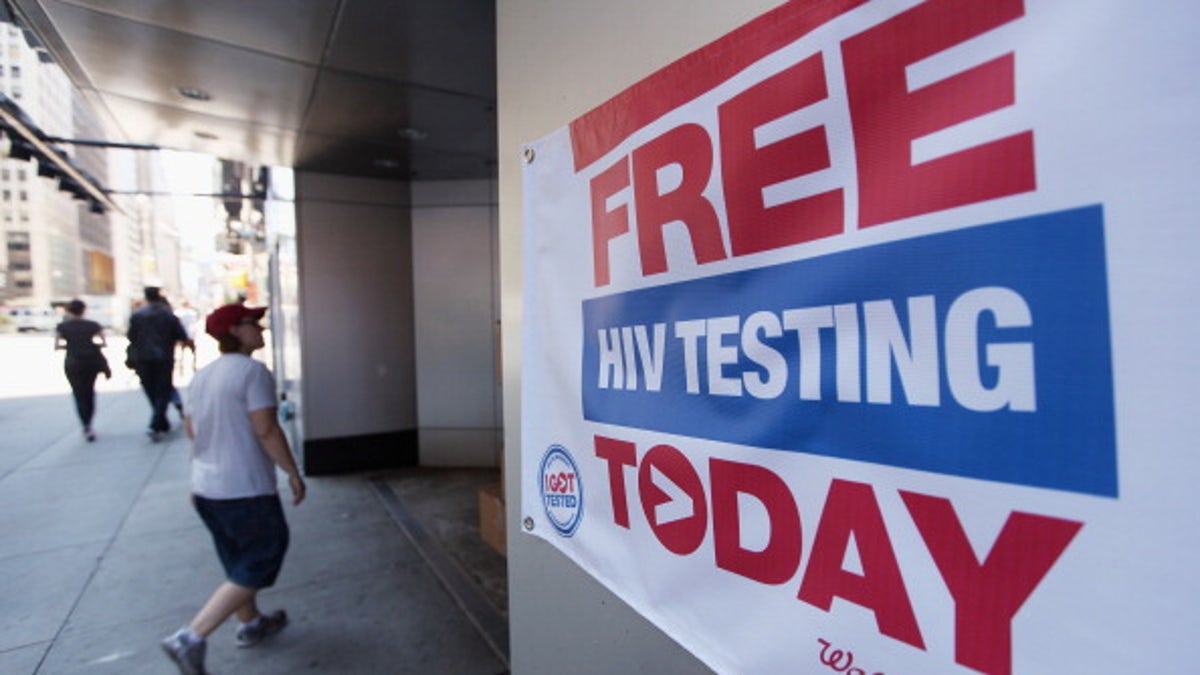
A sign for free HIV testing is seen outside a Walgreens pharmacy in Times Square in New York City. (Getty)
A rise in AIDS cases in New York City’s immigrant community has prompted city officials to call it a “public health failure.”
But New York, which saw a 4 percent rise in AIDS cases among foreign-born Latinos in three years, to 31 percent, is not alone in dealing with a growing crisis in the Latino community – and health officials are scrambling to figure how to solve the problem.
Hispanics represent just 16 percent of the U.S. population yet account for 20 percent of total new HIV infections. According to a recent survey by the Kaiser Family Foundation, Hispanics have the highest rate of new AIDS cases in the country.
And the reason for the increase, according to experts, is simple: Latinos are not getting tested.
“Latinos are more likely to get tested for HIV at later stages of infection, when compared to any other population,” Tony Ochoa, the program manager for the National Latino AIDS Awareness Day, told Fox News Latino.
He said there is a need in the community to raise awareness about the disease so the numbers do not keep climbing.
“We begin to see that it’s important to tackle HIV/AIDS awareness at many fronts in order to impact change,” he said.
While Latinos are not the largest group with AIDS – African Americans still top the list – health officials are concerned about Latinos because many cultural factors prevent them from being properly treated.
Daniel Leyva, senior director of the Latino Commission on AIDS, said those factors include fear of discrimination, stigmatization, and for undocumented immigrants, fear of deportation.
“The Latino HIV gap is an index of multiple contextual influences and inequities that make Latinos more likely to come into contact with the disease, and less likely to treat it,” Leyva said in an email.
Certain areas of the U.S. are hit hard by the AIDS epidemic. Just 10 states account for over 80 percent of the new AIDS diagnoses among Latinos. Apart from California and Puerto Rico, almost all of the new cases are in the east coast.
Rocio Ruiz, prevention director for the Hyacinth AIDS Foundation in New Jersey, says one of the keys to reaching out to the immigrant community has been finding “culturally component individuals” to take part in their community awareness programs.
The real challenge, she said, “is the openness of the community to receive and talk about these issues.”
Added Ruiz: “For Latinos, the battle against HIV and AIDS is not a thing of the past,” he said.
